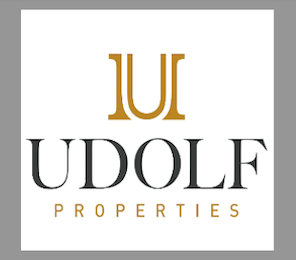
Prof. Hizky Shoham
JERUSALEM – Hizky Shoham is a cultural historian of Zionism. He is finishing a postdoctoral position in the program for Judaic Studies at Yale University. He will soon begin as a teaching fellow at Tel Aviv University in Israel. His book, “Mordechai is Riding a Horse: Purim Celebrations in Tel Aviv and the Building of a New Nation, 1908-1936” (Hebrew) will soon be published by Bar-Ilan University Press.
Shoham, along with several other Yale faculty, conceived and organized “Zionist Historiography Across Time and Space,” an international conference that will be held at Yale University on Sunday, Feb. 6. The conference is co-sponsored by the university’s Program in Judaic Studies and Council on Middle East Studies.
The Ledger spoke with Shoham from his home in Israel about the upcoming conference.
What is the genesis of the conference?
A: The idea of the conference came from multiple conversations I had over the last two years with Professor Paula Hyman, my wonderful mentor at Yale, as well as with others on campus, including Professor Jay Winter, Shiri Goren and Nathan Kurz. We talked a lot about the problem of politicization of the academic study of Zionism by its both proponents and opponents. For various reasons, this gets amplified attention in and out of academic circles. This attention has turned the field into one of the most ideologically charged ones in North American academia today. This polarization makes it more difficult than usual for academics to maintain the professional profile of their work, yet at the same time it makes this practice even more necessary as a public service. A tranquil academic tone, sensitive to nuances and open to criticism and free debate, is sorely missing from current public discourse about Israel and Zionism, and I think that the public needs and would like to have more of that, regardless of personal political opinions.
Can you define “Zionist Historiography”?
A: By “Zionist Historiography” we mean many ways with which scholars talk about the history of Zionist and Israeli culture, society, economy, politics and so forth. Scholarly writing is affected by academic trends which come and go, so we should be aware that some academic-political controversies come out of these general trends and not only from mere political interests. Professor Derek Penslar from the University of Toronto, one of our participants, once gave an example: he pointed to the fact that in current political science, critical approach toward political institutions, nation-states included, is very much in vogue. Much of the critical tone toward the Jewish nation-state in contemporary academia is often derived from those tendencies, perhaps just as much as from ideological bases.
What have been the recent innovations in the study of Zionism?
A: Despite the general divisiveness, I think starting in the last decade or so, after the dust from the 1990s harsh debates between the “old” and “new” historians settled down, there has been a greater openness to new methods, modes of writing and influences. Scholars, students and the broader public have become interested not only in politics in the narrow sense (as the case used to be) but also in the culture, society and economics of Zionism and the State of Israel. Moreover, there has been an attempt to neutralize the moralistic tone which ordinarily accompanies the debate about Zionism and so far blocked new directions and dialogues.
What do I mean? Think about the statement: “Zionism is colonialism.” This is a highly charged statement, one which invariably evokes an emotional response in each of us. Yet, recent academic debate does not say “yes” or “no,” as was the case in the 1990s, but rather: “let’s check!” We can compare the techniques, language, values and perceptions of the colonizing project of Zionism to that of other colonial movements. If we do that seriously and genuinely, we will find many similarities and differences. In other words, we discover that history is always more complicated – but also more interesting – than the usual political slogans of pro-Zionists, anti-Zionists, post-Zionists and everyone in between would lead us to believe. And wherever you are on that political scale, I believe that an acceptance of nuances in similarities and differences between Zionism and colonialism matters to you. For me, this is the unique academic point of view: if we allow the academy to get dragged into the overly simplified public political debates, we might as well close the schools.
Can you give a synopsis of the issues that will be discussed at the conference?
A: There is so much going on in and around historical writing on Zionism nowadays that we could easily have filled a two-day program and still left a lot aside. Unfortunately, we have only this Sunday. Many lectures will describe and analyze recent trends in the study of Zionism. The audience will have the opportunity to hear about the evolution of the Zionist historical imagination.
We thought that it would be important to contextualize Zionism within the study of modern nationalism, and Professor Zeev Sternhell, a winner of the Israel Prize (2008), will discuss Zionism in comparison with other European nationalist movements. Many people think that we live today in a “post-modern” or “post-national” era; that is, an era in which the power of nation-states is diminishing. Professor Anita Shapira, also a winner of the Israel Prize (2008), will critically address this assessment and try to evaluate the future of modern nationalism in the post-modern age.
Finally, many North American college students have been exposed to the recent development of a new academic field called “Israel Studies.” More and more courses, institutions, and research resources are being put into the study of Israel and Zionism in North America. I think it is important to critically discuss its expansion and its relationship with related fields, especially Jewish studies and Middle Eastern studies. A roundtable session, of which we are particularly proud, will host prominent scholars and academic leaders in North America to address this issue from multiple angles: the dialogues and encounters with Judaic studies and Middle Eastern studies, the peril of politicization, the relationship between methodology and ideology, and more.
What do you see as the main academic challenge in the study of Zionism today?
A: First and foremost, there is an urgent need to initiate a broadened dialogue with scholars and departments of Middle Eastern studies. For various reasons, political but also institutional, there is almost no conversation between scholars of the modern Middle East and those of Zionism. Zionism and modern Arab societies – particularly the Arab-Palestinian movement, of course – are strongly interconnected and integrated historically, but that has not been reflected in history books, classrooms and conferences. Both are studied as if they had no effect on each other. I think that it is impossible to understand one without understanding the other, and academically speaking, this rift is a professional failure on both parts. We should be able to talk not only about politics – especially, who was “guilty” or who was “first” – but also about culture, identity, society and economics, and see the larger picture of mutual influences. For example, in my field, the study of the new Hebrew culture that developed in pre-state Israel, we acknowledge today that Arab music was and still is vital in the development of Israeli music. The essence of academic work is to understand – before, not necessarily instead of, judging. My hope is that the aforementioned roundtable session will be a modest first step in this direction.
The “Zionist Historiography Across Time and Space” conference will be held at on Sunday, Feb. 6, 9 a.m. – 6:15 p.m. at Yale University’s Macmillan Center for International and Area Studies, 34 Hillhouse Ave., Luce Hall 203, New Haven. For more information email hizky.shoham@yale.edu.








 Southern New England Jewish Ledger
Southern New England Jewish Ledger








